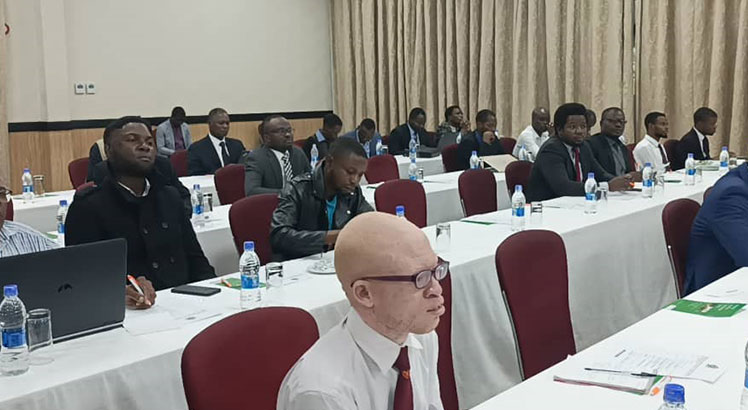Malawi Confederation of Chambers of Commerce and Industry (MCCCI) has asked government to ban importation of motor vehicles older than 10 years from year of make to address foreign exchange challenges.
Making a submission of inputs from businesses during the 2023/24 Pre-Budget Consultation Meeting in Blantyre yesterday, MCCCI chief executive Chancellor Kaferapanjira recommended the ban, saying motor vehicles older than 10 years consume a lot of spare parts and are among top 10 imports.
He also recommended a ban on second hand clothes in the near future, urging Treasury to develop a medium-term strategy spanning five years to develop the textile and garment industry and move towards banning of importation of secondhand clothes. He said second hand clothes imports also rank among the top 10 imports.
Kaferapanjira said: “Statistics speak for themselves. When you go to Malawi Revenue Authority and check the statistics, on position number two or three, is spare parts for older models. We cannot afford to continue spending so much money on spare parts.
Delegates to the Blantyre leg of the consultations follow the proceedings
“So, what we are recommending is not necessarily to ban importation of secondhand vehicles because we need them, we are not in a position where everyone can afford a brand new vehicle.”
He said the move could help create jobs in the local economy.
However, Consumers Assocoation of Malawi executive director John Kapito said while he appreciated MCCCI’s position, banning and controlling imports has serious negative economic effects as prices of the banned goods become too expensive for the consumer.
He said: “Secondly, Malawi is among the poorest countries and that its consumers cannot afford a brand new or a 10-year old car.
“Malawians are not wearing secondhand clothes by choice, it’s out of poverty and banning such clothes would hurt the poor and banning and controlling imports of these products would just increase smuggling and hurt the very same consumers.”
Kapito said the best government can do is to identify key products and services that can improve and bring in foreign exchange as well as develop realistic poverty reduction programmes to create an enabling economy “that can graduate Malawians from aspiring to wear kaunjika and buy older car models”.
In his reaction, Car Dealers Association of Malawi member Amon M’bwana said putting a bracket on such vehicles would help as most Malawians, including commercial banks and organisations, rely on second-hand vehicles.
He also saidTreasury is benefitting in terms of taxes from the importation of secondhand cars and their spare parts.
Meanwhile, Kaferapanjira has also asked Treasury to incentivise local production of fertilisers and cooking oil to reduce imports, dis-incentivise importation of vegetables to encourage local production and allow the kwacha exchange rate to be more market aligned to dis-incentivise unnecessary imports while incentivising exports.
According to the data, while official telegraph transfer sell is pegged at around K1 030, cash sells stand at around K1 500 against the dollar.
In his remarks, Minister of Finance Sosten Gwengwe indicated that going forward, the budget will start concentrating on the productive side of the economy that speaks aspirations of the various stakeholders.
(Read more stories of the Pre-budget Consultation Meetings in Business News Section)
The post MCCCI wants used cars, kaunjika imports ban appeared first on The Nation Online.
 Moni Malawi
Moni Malawi 

